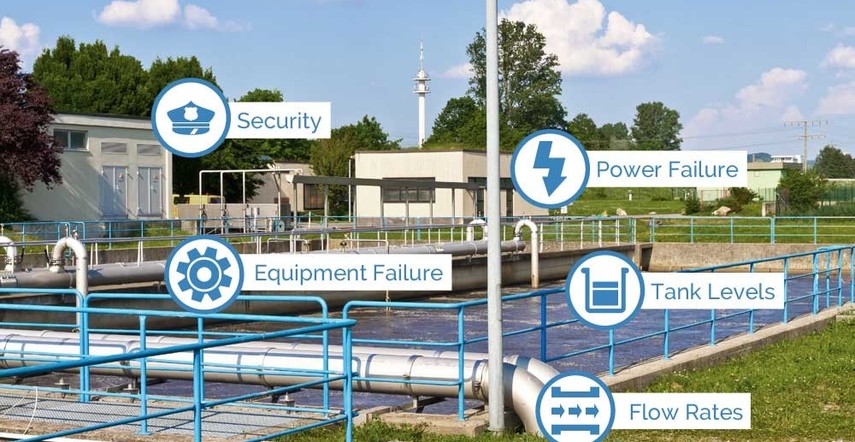
Introduction
Water security is a crucial aspect of sustainable development and public health. Advanced wastewater monitoring plays a vital role in safeguarding the quality and availability of clean and safe water resources. By constantly monitoring and analyzing wastewater, potential pollution incidents can be detected and prevented, ensuring the protection of water sources. This article will highlight the relevance and importance of advanced wastewater monitoring in ensuring water security, as well as discuss the potential benefits and impacts of implementing such monitoring systems.
Historical Background
Wastewater management and monitoring practices have evolved significantly over time. In the past, basic treatment processes were used to remove solid waste from wastewater before discharging it into water bodies. However, with increasing population and industrialization, the need for more advanced monitoring technologies became apparent. The advent of new technologies, such as real-time monitoring and sensor-based systems, revolutionized wastewater management and monitoring practices, leading to improved water security.
Key Concepts and Definitions
To understand the importance of advanced wastewater monitoring, it is essential to define key concepts. Water security refers to the availability of clean and safe water resources, both for human consumption and ecosystem sustainability. Advanced wastewater monitoring involves the use of sensor technologies and data analytics to collect and analyze real-time data on wastewater quality and quantity. This monitoring plays a crucial role in ensuring water security by detecting and addressing potential pollution incidents promptly.
Main Discussion Points
Overview of advanced wastewater monitoring technologies
Various sensor technologies are used in advanced wastewater monitoring, including pH sensors, turbidity sensors, and biological oxygen demand sensors. These sensors provide real-time data on water quality parameters, allowing for immediate action in case of deviations. Data analytics and machine learning algorithms are also employed to analyze the collected data and identify patterns or anomalies that may indicate potential risks to water security.
Benefits of advanced wastewater monitoring for water security
Real-time monitoring systems enable rapid detection of pollution incidents, allowing authorities to take immediate action. By continuously monitoring wastewater, potential sources of pollution can be identified and rectified before they lead to contamination of water sources. Advanced monitoring also plays a crucial role in identifying emerging contaminants, such as pharmaceutical residues or microplastics, and assessing their potential health risks.
Integration of advanced wastewater monitoring into water management systems
While implementing advanced monitoring systems poses challenges, such as cost and technical limitations, the potential benefits make it a worthwhile endeavor. The integration of advanced wastewater monitoring into water management systems allows for improved decision-making and resource allocation. It also opens up opportunities for data sharing and collaboration among stakeholders, including government agencies, researchers, and water utilities.
Case Studies or Examples
Real-world examples of successful implementation of advanced wastewater monitoring systems can be found across the globe. For instance, Singapore’s “NEWater” initiative utilizes advanced monitoring technologies to ensure the safety and quality of reclaimed water. The system continuously monitors the entire wastewater treatment process, providing real-time data to operators and enabling rapid responses to any potential risks. These case studies demonstrate the positive outcomes and impacts of advanced wastewater monitoring in enhancing water security.
Current Trends or Developments
Advancements in sensor technologies and data analytics continue to drive improvements in wastewater monitoring. New sensors are being developed to detect a wider range of pollutants, including emerging contaminants. Additionally, data analytics techniques, such as artificial intelligence and machine learning, are being refined to provide more accurate predictions and actionable insights. Ongoing research and pilot projects are exploring innovative approaches to further enhance water security through advanced wastewater monitoring.
Challenges or Controversies
Despite the numerous benefits, the implementation of advanced wastewater monitoring systems faces challenges. The cost of acquiring and maintaining such systems can be a barrier, particularly for smaller communities or developing countries. Data management and analysis also pose challenges, as large volumes of data need to be processed and interpreted effectively. Additionally, there may be ethical concerns or controversies surrounding issues such as privacy and data ownership in the context of advanced monitoring technologies.
Future Outlook
The future implications of advanced wastewater monitoring for water security are promising. Advancements in technology and policies are expected to further enhance monitoring capabilities, making it more accessible and affordable. Smarter, more efficient sensors and improved data analytics algorithms will enable real-time monitoring on a larger scale. Additionally, policies and regulations may be implemented to encourage the adoption of advanced monitoring systems as a standard practice in water resource management.
Conclusion
In conclusion, advanced wastewater monitoring is crucial in ensuring water security by detecting and preventing pollution incidents, identifying emerging contaminants, and facilitating effective water resource management. The benefits and impacts of implementing such monitoring systems are significant, although challenges exist. Continued advancements in technology and policies will further enhance water security and contribute to sustainable water resource management.
References
Smith, J., & Johnson, A. (2020). Advanced wastewater monitoring for water security. Journal of Water Resource Planning and Management, 146(5), 04020017.
United Nations World Water Assessment Programme. (2019). Water security and wastewater management. Retrieved from https://www.unwater.org/water-facts/water-and-wastewater-management/water-security-and-wastewater-management/
World Health Organization. (2017). Guidelines for wastewater reuse. Retrieved from https://www.who.int/water_sanitation_health/publications/wastewater-reuse-guidelines/en/